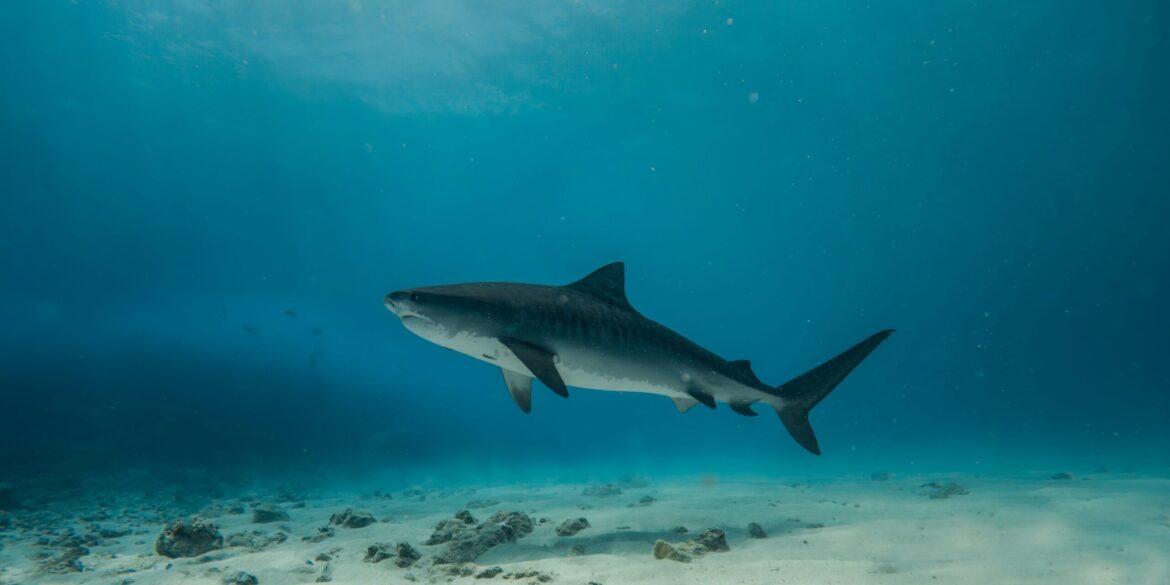On July 8, 2025, Shannon Barry, a Ph.D. student at Florida Institute of Technology (Florida Tech) in Melbourne, Florida, made waves as her groundbreaking research on bull sharks was featured in National Geographic’s SharkFest series. Barry, who is studying the impact of climate change on shark behavior, is part of the episode titled Investigation Shark Attack: Gulf Trouble. The documentary takes an in-depth look at how environmental shifts, particularly warmer ocean temperatures, affect bull sharks’ migration patterns and interactions with humans along the Florida coastline.
The Bull Shark’s Role in Florida’s Marine Ecosystem
The Indian River Lagoon, one of the most biodiverse estuaries in the United States, has long been known as a critical nursery ground for bull sharks. Barry’s research reveals that as ocean temperatures rise, these sharks are being pushed to explore new coastal habitats. The consequences of this shift could alter the ecosystem’s balance and have serious implications for Florida’s local marine life, which relies on bull sharks to control the populations of smaller fish.
“Bull sharks are often misunderstood,” Barry says. “They play a vital role in maintaining healthy ecosystems by regulating prey populations. With climate change altering their habitat, understanding their behavior is critical for their conservation and for the well-being of Florida’s coastal ecosystems.”
Barry’s research, conducted under the guidance of Dr. Toby Daly-Engel, an expert in shark behavior, focuses on tracking bull shark movements and their genetic diversity. By combining field research and genetic analysis, Barry and her team are investigating how environmental changes impact shark populations at both the behavioral and genetic levels.
The Growing Importance of Shark Conservation in Florida
Sharks, particularly those found in Florida’s waters, are crucial to maintaining the health of the state’s marine ecosystems. Florida is home to a wide variety of shark species, including the bull shark, which is known for its ability to survive in both saltwater and freshwater. The Indian River Lagoon, for example, serves as a vital nursery ground for juvenile sharks, providing them with the perfect environment to grow and develop before venturing into the open ocean.
Barry’s work on bull shark conservation is a part of a broader global movement to better understand and protect shark populations. In Florida, where shark tourism is a significant industry, Barry’s research highlights the importance of safeguarding these predators for both ecological and economic reasons. As Florida is home to one of the largest populations of bull sharks in the United States, understanding how climate change is affecting these sharks is crucial for local conservation efforts.
“Sharks are apex predators, and their role in the ecosystem cannot be overstated,” Barry explains. “Their presence in these waters is essential for maintaining the balance of the food chain.”
Educational Outreach and Public Engagement
Barry’s appearance on National Geographic’s SharkFest is more than just an opportunity to showcase her research—it’s a chance to educate the public about the significance of sharks in Florida’s marine environment. SharkFest, which airs every summer, brings the science of shark behavior to millions of viewers, providing critical insights into the role sharks play in ocean ecosystems and the effects of climate change on marine life.
By featuring Barry’s research, National Geographic is helping to shift the narrative surrounding sharks from dangerous predators to essential members of the oceanic food web. Barry is also involved in educational outreach initiatives, working with local schools, conservation groups, and government agencies to promote shark conservation and environmental sustainability in Florida.
As Miami and the surrounding areas continue to face the effects of climate change, Barry’s research is a valuable contribution to understanding how Florida’s marine life will adapt to these changes. By shedding light on the behaviors and movements of these apex predators, Barry hopes to foster a deeper understanding of their importance and encourage proactive measures to protect their habitats.
Conclusion
Barry’s feature on National Geographic’s SharkFest is a significant moment for Florida’s conservation community and provides a platform for important scientific research on bull sharks. As Florida continues to grapple with the environmental impacts of climate change, research like Barry’s will play an essential role in protecting the state’s natural resources for future generations.

